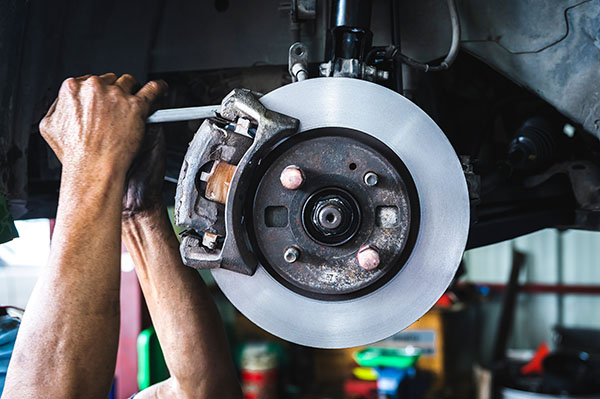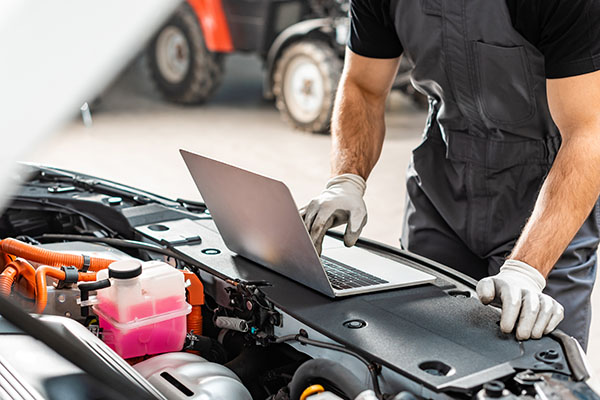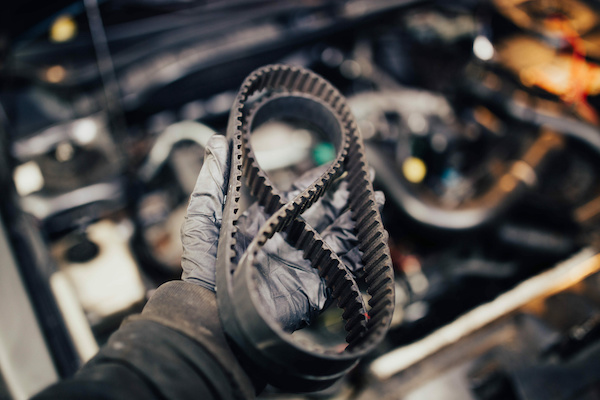Posted on 12/25/2023
.jpeg)
In the evolving narrative of automotive technology, our vehicles have become more than mere modes of transport. They are sophisticated machines, complexly woven with a web of sensors and computer systems. As we embark on a journey through the heart of your vehicle's inner workings, let's explore the five intriguing ways your trusted companion benefits from the regular embrace of computer diagnostics. Proactive Maintenance In the realm of vehicular well-being, foresight is a powerful ally. Regular computer diagnostics act as the watchful precaution step, monitoring the processes between various components. Detecting the language of error codes and real-time data identifies potential issues before they escalate. This proactive approach not only prevents unexpected breakdowns but also saves you from costly repairs down the road. Common Error Codes ... read more
Posted on 11/30/2023

We understand that your car is more than just a machine - it's a trusted companion on life's many journeys. It deserves the best care, which often begins with something as simple yet crucial as choosing the right engine oil. The heart of your car, the engine, demands specific nourishment to keep it running smoothly and efficiently. With an array of options on the market, selecting the ideal engine lubricant can feel overwhelming. Understanding Engine Oil Varieties Every engine oil has its own unique characteristics and benefits tailored to various needs. Here's a look at the core quartet: 1. Conventional Oil: The Traditional Choice Conventional oil, also known as mineral oil, is derived directly from crude oil and has been the go-to choice for many years. It's suitable for older models or vehicles with simple engine designs that don't demand high-performance lubricants. 2. Full Synthetic Oil: The High-Performance Proteg ... read more
Posted on 10/31/2023

Amidst this exhilarating experience, there's a crucial element that ensures your safety and control—the often-overlooked brake fluid. While it might not be as glamorous as the sleek exterior or the powerful engine, brake fluid plays a pivotal role in your vehicle's braking system, enabling you to navigate sharp turns and sudden stops with precision and confidence. Understanding the essence of brake fluid and its vital function is essential in maintaining your vehicle's safety and ensuring a smooth and secure driving experience. The Role of Brake Fluid Brake fluid, often referred to as hydraulic fluid, serves as the lifeblood of your vehicle's braking system. It transmits the force applied to the brake pedal to the braking components, enabling the conversion of kinetic energ ... read more
Posted on 9/30/2023

When it comes to iconic cars that seamlessly blend style, performance, and engineering, Volkswagen sits atop the automotive hierarchy. Owning a Volkswagen isn't just about having a mode of transportation; it's a statement of passion for driving. But to keep your beloved VW running at its best, you need to know what maintenance tasks to prioritize. From routine check-ups to DIY tips, we've got you covered on your journey to maintaining a finely-tuned Volkswagen. Oil Changes Think of engine oil as the lifeblood of your Volkswagen. Regular oil changes, typically every 5,000 to 7,500 miles, ensure that your engine stays well-lubricated, preventing wear and tear on vital components. Using high-quality synthetic oil tailored to your Volkswagen's specifications is crucial to keep your engine purring like a contented cat. Brake System Checks - Stopping Power Matters Your Volkswagen's brakes are not just for stopping; they're essenti ... read more
Posted on 8/31/2023

Have you ever wondered what a timing belt is? It's a crucial component of your car's engine that helps keep everything running smoothly. Without it, your engine could suffer severe damage. That's why understanding its importance and knowing what it does is vital. Join us as we go over precisely what it does, why it's essential, and when to change it. What is a Timing Belt? A timing belt, or cam belt, is a crucial part of your car's internal combustion engine. It's a toothed, reinforced belt that connects the engine's crankshaft to the camshaft. The camshaft controls the opening and closing of engine valves, while the crankshaft manages the engine's pistons. The timing belt synchronizes these two essential components, ensuring they operate perfectly. Why is the Timing Belt So Important? Precise Engine Timing The timing belt's primary role is to maintain precise engine timing. This means the camshaft and crankshaft must be perfectl ... read more